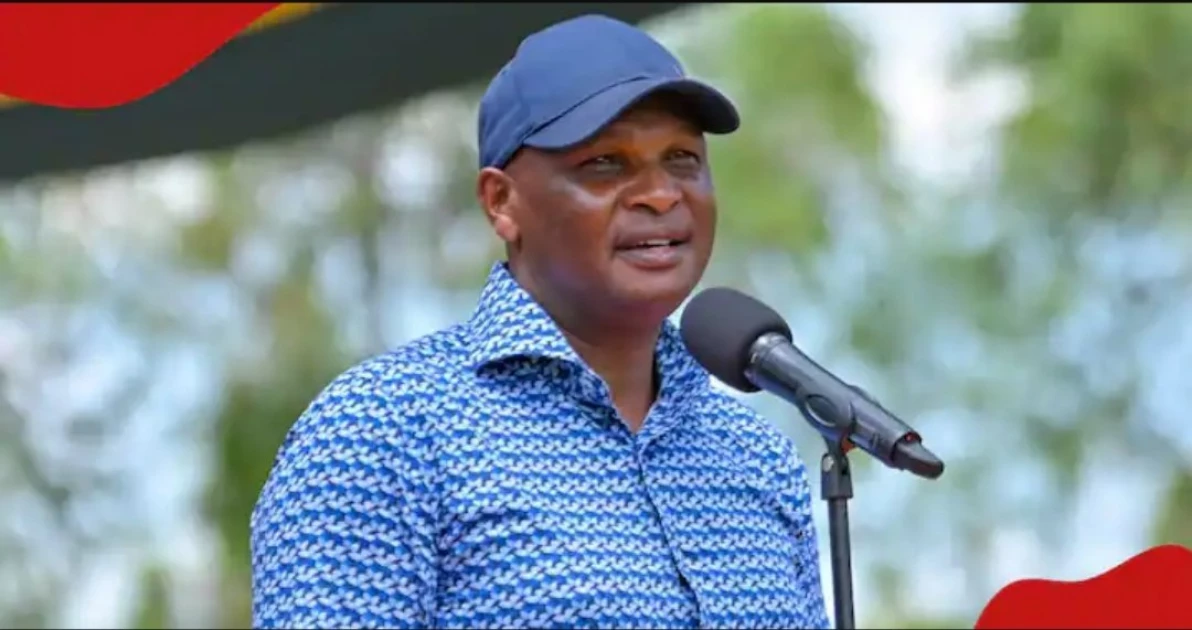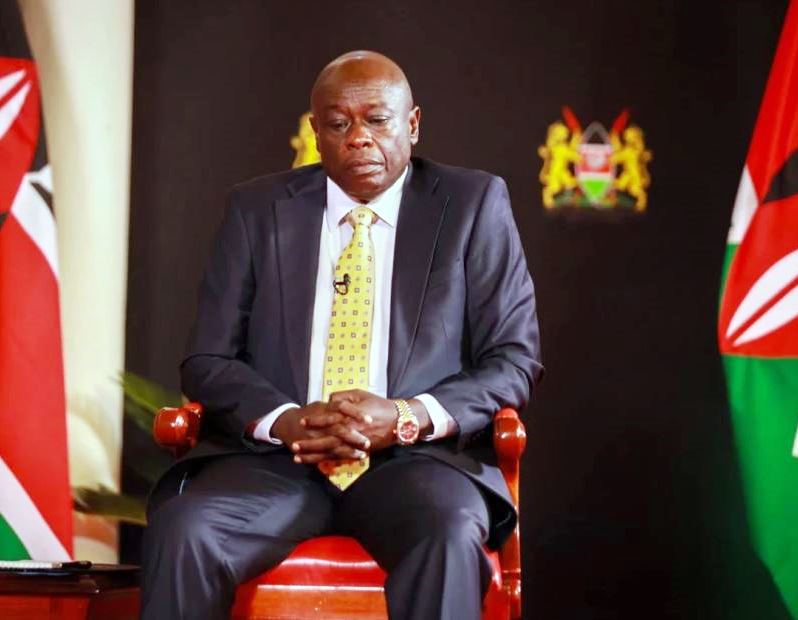The political drama between former Deputy President Rigathi Gachagua and President William Ruto has escalated. Gachagua has warned Kenyans of a calculated move to revive an inner circle of informal advisors, popularly known as a “kitchen cabinet,” within Ruto’s administration.
Speaking in a live television interview, Gachagua claimed that the president relies on a tight-knit group of unelected confidants, effectively sidelining formal cabinet structures. He warned that this inner circle mirrors the controversial “Kalenjin Mafia” of the Moi era, a powerful advisory clique drawn from former President Daniel arap Moi’s ethnic base, widely seen as running the government from behind the scenes.
Central to Gachagua’s criticism is Ruto’s long-serving personal assistant, Farouk Kibet, who, Gachagua says, now wields more power than Deputy President Kithure Kindiki. According to Gachagua, Farouk has the authority to summon cabinet secretaries, principal secretaries, and other senior officials at will, a role traditionally reserved for top government executives.
Insiders at State House confirm that Farouk leads the president’s informal advisory council. The group reportedly includes Interior Cabinet Secretary Kipchumba Murkomen, Head of Public Service Felix Kosgey, Economic Advisor David Ndii, Uasin Gishu Women’s Representative Gladys Shollei, and Dr. Korir Sing’oei, the Legal Advisor at State House.
Gachagua’s warning has rekindled debate over the role of kitchen cabinets in Kenya’s political history, a feature of nearly every presidency. Jomo Kenyatta, Kenya’s founding president, was closely surrounded by the so-called “Kiambu Mafia,” a clique of powerful Kikuyu politicians and businessmen including cabinet ministers Mbiyu Koinange, James Gichuru, Dr. Njoroge Mungai, Attorney General Charles Njonjo, and tycoon Njenga Karume.
Vice President Jaramogi Oginga Odinga, meanwhile, had his own Luo advisory circle comprising Achieng Oneko, Wasonga Sijeyo, Dennis Akumu, and Ndolo Ayah.
Upon succeeding Kenyatta, Daniel Moi initially assembled a more ethnically diverse inner circle, including Charles Njonjo, G.G. Kariuki, and Simeon Nyachae. However, he later turned to a loyalist network of Kalenjin elites dubbed the “Rift Valley Mafia,” which included powerful figures such as Nicholas Biwott, Mark Too, Hosea Kiplagat, and Kipng’eno arap Ngeny.
President Mwai Kibaki’s inner circle, the “Muthaiga Group,” was composed largely of golfing buddies and Mount Kenya power brokers like John Michuki, George Muhoho, Eddy Njoroge, J.B. Wanjui, and once again, Njenga Karume.
Gachagua’s remarks have laid bare simmering tensions within the Kenya Kwanza alliance, raising questions about the balance of power in government. Critics fear a return to informal governance structures that prioritise loyalty and ethnicity over merit and public accountability.
Whether the alleged kitchen cabinet under Ruto will solidify into a new power centre or provoke deeper rifts in the administration remains to be seen, but for now, the battle lines within Kenya’s executive are clearly drawn.




